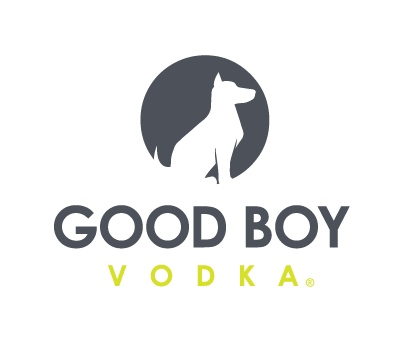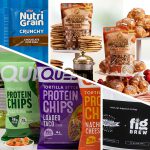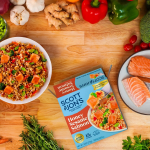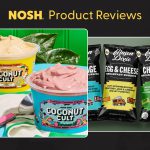PepsiCo Launches Two D2C Platforms To Meet Consumer Demand
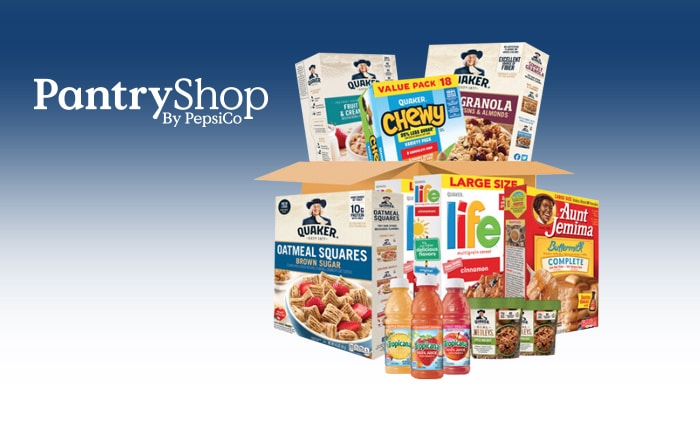
PepsiCo is pivoting to meet consumer demand online with the launch of two new ecommerce platforms — snacks.com and pantryshop.com. The two storefronts will allow the company to give consumers easy access to the familiar and “comforting” brands they are seeking out during the Covid-19 pandemic, said Gibu Thomas, SVP and head of ecommerce for PepsiCo.
Over the five years Thomas has been with the company, PepsiCo has invested heavily in ecommerce opportunities — although mostly to support optimizing its presence on and relationships with other retailer websites. The company has only launched its own storefronts for more niche brands or for testing, such as with HiLo. Still, last year the company brought in $2 billion in sales online, Thomas said. There simply was no need for its own ecommerce platform, he added, unless there was a specific unmet consumer demand.
“We wanted to approach ecommerce like a tech company,” Thomas said. “We always looked at direct to consumer, but the test was that we wanted there to be a unique and distinct proposition to justify direct to consumer because our products are ubiquitous and our retailer partners do a fabulous job of making sure our products are available.”
That opportunity proved to be the coronavirus pandemic, which has accelerated the adoption of ecommerce by as much as five years, Thomas said. On top of this new consumer behavior, he added, PepsiCo also saw shoppers seeking access to familiar brands, which sometimes were hard to find even before the pandemic occurred.
On Snacks.com consumers can place an order for a variety of products in the Frito Lay portfolio. Although consumers can choose from a selection of individual items, rather than having to purchase multipacks or cases, a $15 minimum order is required for free shipping. Consumers will see different offerings depending on the region they live in and the stock levels of the closest distribution center.
Thomas said the goal is to offer shoppers the breadth of the Frito Lay portfolio as a “snacking destination.” As trips outside of the home also drop, and consumers spend less time in stores, the low minimums provide PepsiCo with a discovery platform where consumers can still make an impulse purchase, adding on a single bag of a product they’ve never tried before.
“Despite how ubiquitous Frito Lay snacks are, there’s a whole tail assortment of snacks that are not as readily available to consumers and there was demand for that,” Thomas said. “I think the proposition is evergreen. If you love brands that are not as available or mainstream, your love for those brands aren’t going to go away [when this ends].”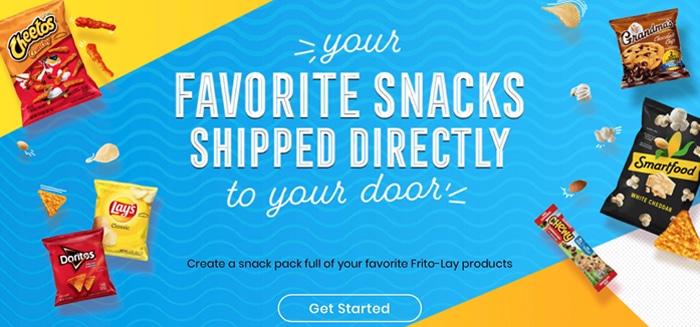
On PantryShop.com consumers can choose from a range of bundles, ranging in price from $29.95 to $49.95, with free shipping, that are designed to offer shoppers “curated solutions to meet their new needs” such as working out from home or working remotely. The bundles, which feature both food and beverages, may evolve over time; for example, adding a tailgating bundle once the football season begins. Shoppers currently cannot customize their bundles, an intentional decision that Thomas said is designed to remove some of the stress around having to make purchasing decisions.
Both sites are currently being picked, packed and shipped by PepsiCo fulfillment centers with national carriers handling last mile delivery. Although these two projects were launched only in the last month, the company had existing systems in place for direct-to-consumer order fulfillment, Thomas said. The company also already fulfilled orders for some retail partners, such as Walmart and Amazon, when their distribution centers were out of stock so that the end consumer could still make a purchase.
Although beverage options on PantryShop.com are currently limited to just Propel, Gatorade and Tropicana, Thomas said shipping is less of an issue for these bulky, heavy orders because of the companies existing geographically dispersed supply and production chain
“The product doesn’t have to travel across the country to get to you,” Thomas said. “We’re taking advantage of our distributed supply chain footprint and we feel we can ship any product we make — regardless of if it’s a snack or beverage — economically to you and as we scale those offerings, there’s economics of scale and those economics get better and better.”
Thomas doesn’t see Pepsi’s ecommerce business as a threat to existing retail partnerships, but rather as complementary, with the bulk of sales still expected to come from brick and mortar stores. If anything, he added, this will only strengthen in-store execution as data from ecommerce can help improve innovation, promotion and merchandising strategies.
Ultimately, Thomas said, it’s simply a tool to get consumers the products they want.
“This is all part of our holistic approach to be consumer centric and make sure we are meeting the needs of consumers regardless of how, when and where they want to shop.”












